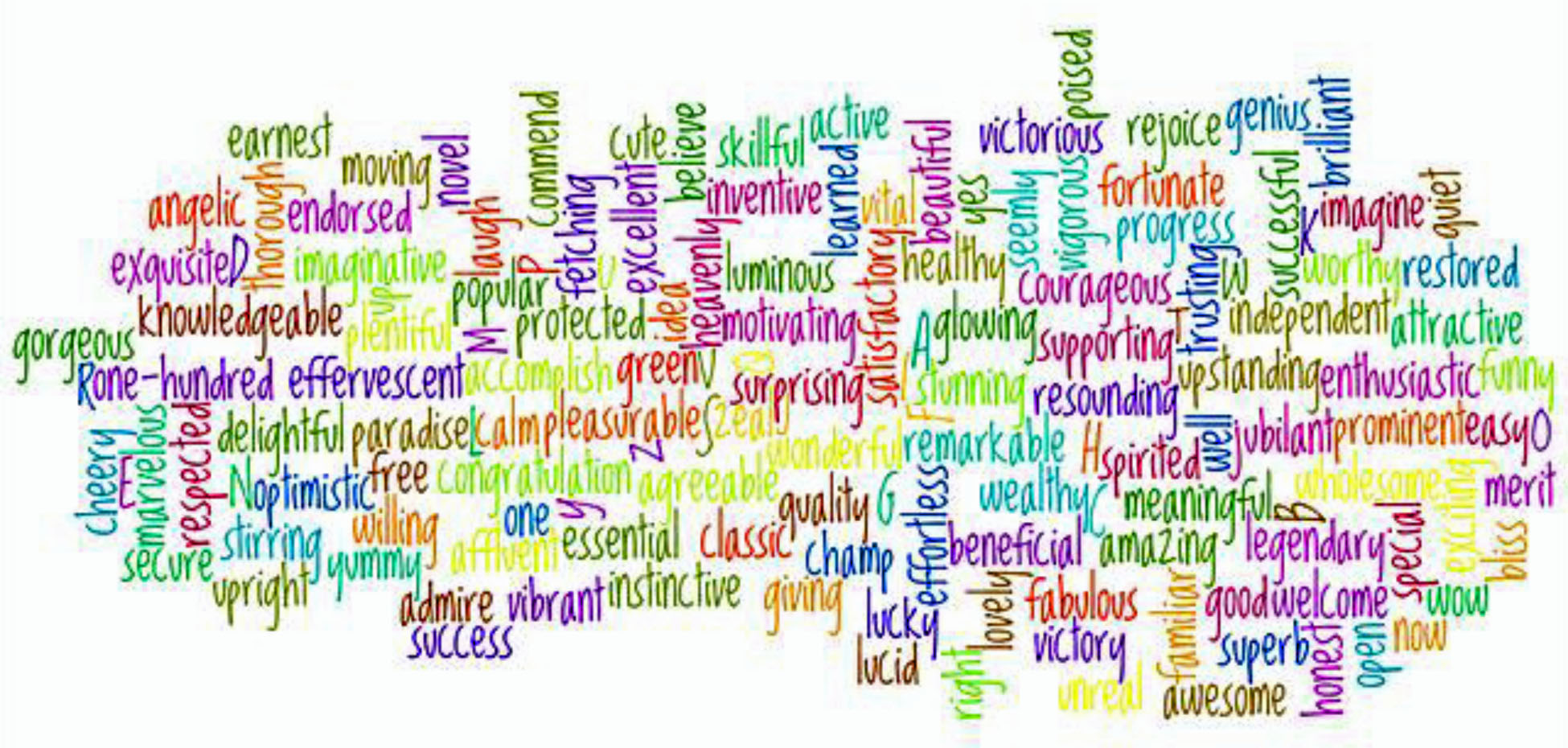The Right Word
by Joseph N Goodell

Dietary wisdom instructs us to eat plenty of fresh, whole (unprocessed), healthy fruits and vegetables. That advisory contains a flaw. Fresh fruit and vegetables are off the trees, out of the ground and dead; they are not healthy. Consume the recommended 6-7-8 servings per day, however, and you will be healthy because they are healthful.
English is complex (puzzling) and complicated (tangled). It is too confounded (confused) and convoluted (involved) with synonyms. But thesaurus publishers, poets, some essayists, lawyers and wordsmith hobbyists of all stripes thrive on continual (oft-repeated), as well as continuous (steady, persistent), pursuits of the “right word.” None of these “priests of precision” is (not are) immune from egoism (my interests are the best) or egotism (I am the best).
Mrs. Webster, so legend has it, shouted her “surprise” when chancing upon her husband in the embrace of their chamber maid. “Quite the reverse,” countered Noah, ever the lexicographer, “it is we who are surprised, you are amazed.”
How about those sound-alikes, allusion, delusion, elusion and illusion. They are different from (not different than) one another, but do overlap a bit more than you might have thought. Similarly, we have imply, indicate, infer and intimate with even more overlapping. An analysis could consider the comparisons (similarities), or the contrasts (differences) “among” all four words in each set, or “between” them, two at a time.

There are many sorts of capital; an example is the city where we live, where there is just the one sort of capitol, the building where the legislature meets. Our Old Capitol has been more than refurbished; it has been splendidly restored and rebuilt, and of course repaired. Maybe reconstructed, but for sure rehabilitated and renovated. Could, should, we not bunch this long series of seven synonyms into one effective (does the job), efficacious (attains the intended result) and efficient (adds value) word?
With that roll of “r’s,” let’s continue by reckoning with a reference to regret, remorse and rue. Also with recall, recollect and remember, or with reiterate, repeat and restate. Get serious! Beyond synonymous, each word of its three-word set is a redundant replication of the other two.
And since we have “save,” perhaps we could consider dispensing with accumulate, amass, conserve, copy, economize, hold, keep, protect, preserve, redeem, rescue, reserve, retain, salvage, store, etc.
COMMUNICATION
It should have been forever set straight in high school grammar, but the transitive “lay,” “raise” and “set” (verbs which require action upon an object) persist in overrunning their intransitive cousins, “lie,” rise” and “sit” (verbs which don’t …). Tell the dog to go lay down in the corner and the kids to quit setting around, to raise up and get to work. Both dog and kids might well wonder just what is being demanded of them.
If you enjoy baffling (bewildering, perplexing), even dazing yourself, try the mystical distinction between each/every, farther/further, may/might, ravel/unravel, shall/will, who/whom and deductive/inductive reasoning. I’ve read, re-read, studied and finally understood the variances (which I quickly forget; the effort gives me a headache). I dismiss them as gamesmanship, semantic artifacts.
There are several word “pairs” where one is often and incorrectly transposed for the other: the “anxious” mind is uneasy, worried; an “eager” mood is a feeling of keen desire… “you can” speaks to ability; “you may” gives permission … “complement” renders completion; a “compliment” is flattery … the bad guy was “hanged” from a gallows; pictures were “hung” on a wall …a speaker stands on the “podium;” his script lies on the “lectern” …”liable” denotes a legal obligation or possibility of something unwanted; “likely” suggests a reasonable expectation…an “alumnus” is one male graduate, “alumni” for two or more; similarly for the ladies, “alumna” and “alumnae”, respectively…when referring to something possessed by individuals in a group, it’s “his/her,” not “their.”
Please, let us rid our language of that appalling expression, sadly gaining traction, “you guys.” Like plastic litter and rude driving, it is a disagreeable import from California. You want any of those, visit Los Angeles. Around the South, especially in Mississippi, it is “y’all,” a venerable icon of our heritage and culture. “You guys” is dissonant, it is an affront and flippant, a deriding, disdainful, disparaging mix of disrespect and dismissal. “Y’all” is a neighborly gesture, cordial, courteous and inclusive, accented with the appealing melody of a magnolia scented lilt, or with the slow drawl of rich golden honey flowing over hot buttered biscuits.
Y’all come back!
Joseph N Goodell….Madison, Mississippi
Dictionary photo photo is licensed under CC By 4.0 — linked to www.pdpics.com 640 × 427Search by image
Dictionary word – Public Domain Picture
Word photo is licensed under CC By 4.0 — linked to pixabay.com 640 × 333Search by image
Words, Alphabet, Word Cloud



Carpenter, Goodell:
Feathered biped of similar plumage publish gregariously.
We thank you, oh bearer of “mot juste.”
Outstandingly Outlandish! Also… Uplifting, and, might I add, very “high-faluttin'” word mongering. I cuden-a-sed-it bedder my-seff.
High faluttin words from a high faluttin guy!